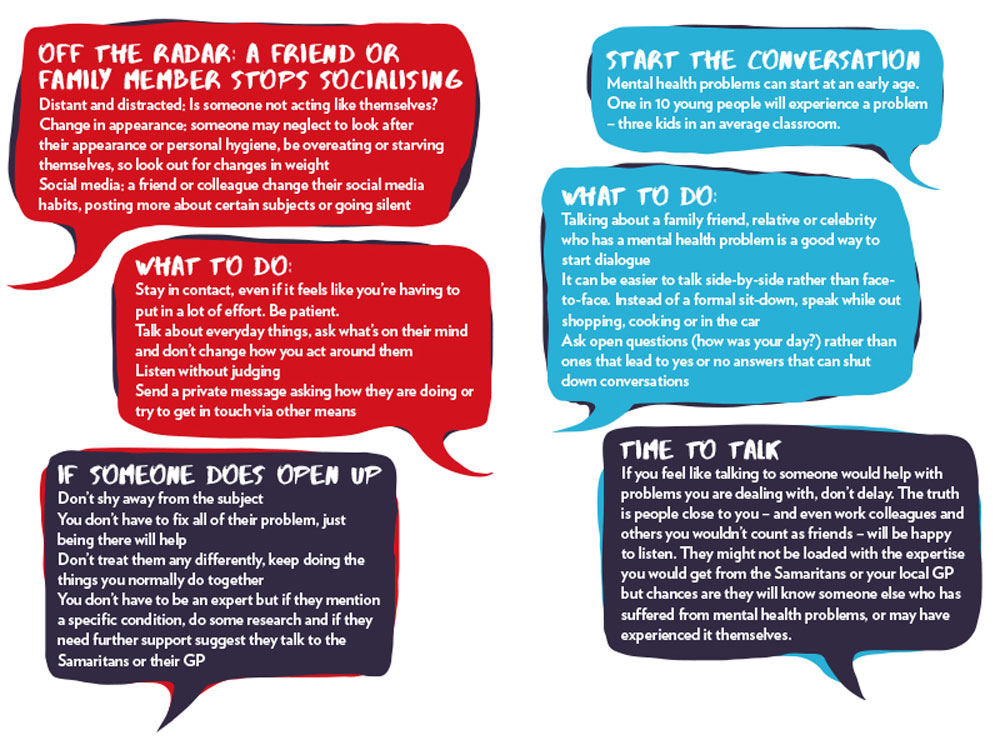It’s easier than ever to communicate to anyone in the world, yet it sometimes seems everyone is connected but not connecting. A report from the Jo Cox Commission last year found that more than nine million people in the UK feel lonely and in response, the government appointed Tracey Crouch as Minister for Loneliness with a remit to create a framework to tackle the causes of isolation. But what else can we do?
Big Issue vendors earn a living by selling the magazine, but they tell us that interaction with customers can be just as valuable. It’s not just vendors who can benefit from a little human contact. Last year the Samaritans launched their Small Talk Saves Lives campaign, to deal with the fact that while around a quarter of us experience mental health problems, most suffer in silence.
Mental health charity Time to Change is behind Time to Talk Day on February 1, encouraging people to share their stories. Chances are someone you know will be dealing with a mental health issue, they just might not know how to tell you about it. Here are some tips about spotting signs and how to start a conversation:
Off the radar: Has a friend or family member stops socialising?
- Are they distant and distracted, not acting like themselves?
- Have they changed their appearance? Someone may neglect to look after their appearance or personal hygiene, be overeating or starving themselves, so look out for changes in weight
- Social media: has a friend or colleague changed their social media habits, posting more about certain subjects or going silent altogether?
What to do:
- Stay in contact, even if it feels like you’re having to put in a lot of effort. Be patient.
- Talk about everyday things, ask what’s on their mind and don’t change how you act around them
- Listen without judging
- Send a private message on social media asking how they are doing, or try to get in touch via other means

If someone does open up…











